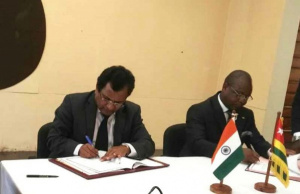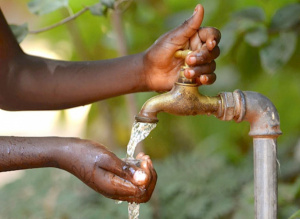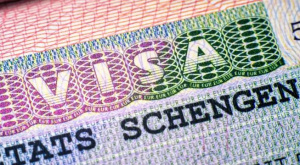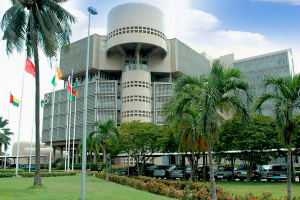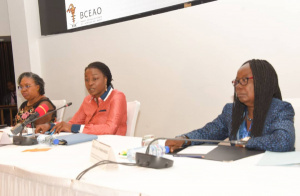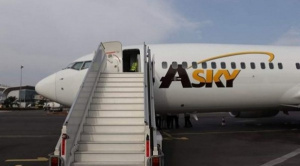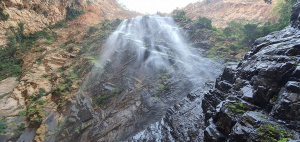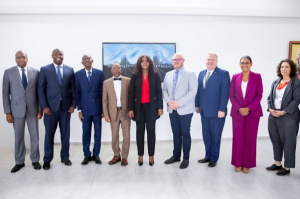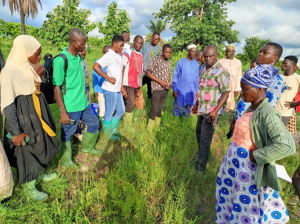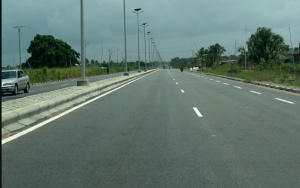Togo First
Togo and India Seal Visa Exemption Deal for Diplomatic Passport Holders
Togo and India inked a visa exemption memorandum of understanding (MoU) last week. The MoU was signed in Lomé, Sevela Naik Mude, head of the Central and West Africa zone at the Indian Ministry of External Affairs, and Afo Salifou, Secretary General of the Togolese Ministry of Foreign Affairs.
This agreement, benefiting holders of diplomatic, official, and service passports from both nations, aims to strengthen the Lomé-New Delhi relationship.
The memorandum was signed during a two-day visit to Togo by an Indian delegation as part of the first political consultations between the Foreign Ministries of India and Togo. During this visit, the two countries also signed another memorandum on political consultations.
Relations between Togo and India are strong, highlighted by several initiatives. Notably, in June 2021, Togo secured a CFA22 billion loan from the Exim Bank of India to finance an electrification project for 350 localities.
Togo, it is worth noting, also recently signed visa exemption agreements with Sao Tomé and Principe and South Africa.
Esaïe Edoh
Togo: 69% of Population Had Access to Drinking Water in 2023
Last year, 69% of the Togolese population had access to drinking water, up from 47.66% in 2014. The update was disclosed on July 2, 2024, by the Ministry of Water.
The data further reveals that in rural areas the service rate rose from 47.7% in 2014 to 74.4% in 2023. In semi-urban and urban areas it stood at 55.9% and 69% in 2023, against 42.6% and 47.7% in 2014, respectively.
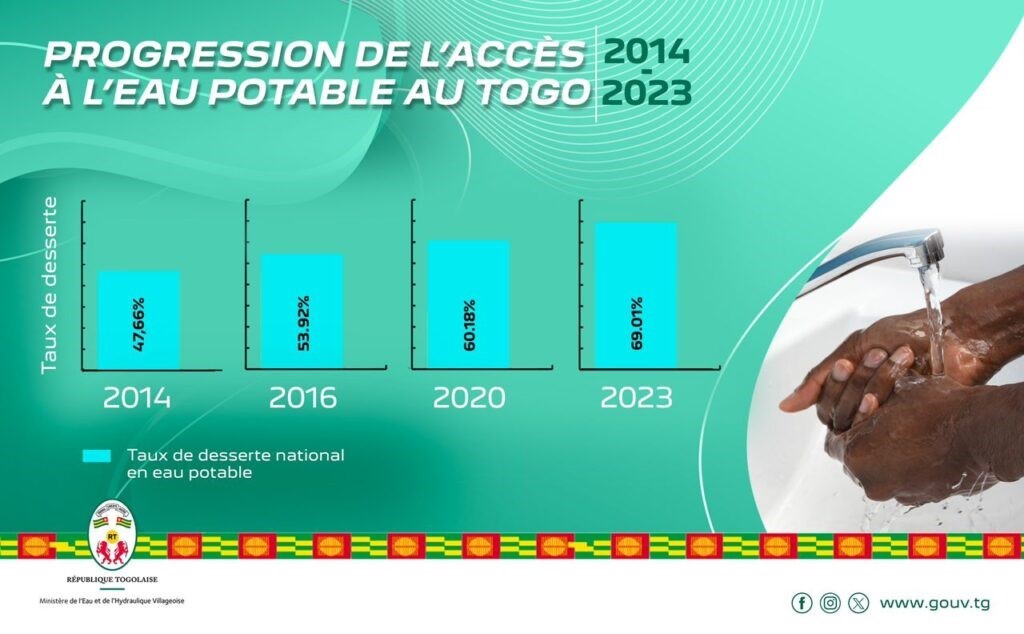
The Ministry of Water attributes the surge to several projects and programs launched by the government, with the financial support of its development partners. Such projects include the PASSCO, which the French Development Agency backed with CFA6.5 billion. The PASSCO helped build 400 new boreholes in Northern Togo.
Other factors that fostered access to clean water include the support and commitment of NGOs and international institutions such as the World Bank, BOAD, and AfDB.
Togo’s government seeks to provide 85% of its population with clean water by 2025 and 100% by 2030.
To this end, they have set up the National Drinking Water Supply Plan and the Water Master Plan for Greater Lomé, supported by strategic partnerships.
Esaïe Edoh
Schengen Visa: Togolese Businessmen Will Struggle Less to Visit France
The French Consulate in Togo has announced a new scheme to simplify and speed up business visa issuance for Togolese company representatives. This was formalized in an agreement signed last May between the French Embassy and Togolese employers' organizations, including the Chamber of Commerce and Industry of Togo (CCI-Togo).
The new system was presented to Togolese economic operators in Lomé on July 1. It aims to help Togolese businessmen and economic operators better plan their trips without long waiting times.
"Visa application deadlines are a minimum of 15 days if the applicant wants to be processed within the planned timeframe," explained Isabelle Rios Mestre, visa officer at the French Consulate. "You can also apply up to six months before your departure date if you can anticipate meetings or trips."
BOAD: Over CFA700 Billion Disbursed in H1 2024
The West African Development Bank, BOAD, disbursed over CFA700 billion to support WAEMU States in the first half of 2024. The Bank disclosed the figure last Thursday, June 27, during the 142nd Ordinary Session of its Board. The BOAD President, Serge Ekue, chaired the session.
"The mid-term review of financial forecasts for the 2024 financial year shows that in the first half of 2024, global financing granted by the Bank is estimated at 712.7 billion CFA francs, representing an execution rate of almost 86% of the annual program of activity", said Ekue. This "with respectively 64% of loans granted to States and 7% to public enterprises", he added.
Regarding resource mobilization, the BOAD seeks to raise more concessional funds to support development across the WAEMU.
According to Serge Ekue, although this mid-term review is "broadly in line with our objectives", it is now a matter of "intensifying our efforts in the mobilization of resources, notably concessional, even pre-concessional, their allocation, to provide our States and our populations with responses commensurate with the needs expressed and expectations."
At its recent board meeting, the BOAD released CFA60 billion for Togo, in support of two projects: the Agropoles project and the development of the Tchaasémondè - Gandé - Agbang road. The sum was allocated out of CFA162 billion newly allocated for the WAEMU.
Ayi Renaud Dossavi
Togo Closer to Having A Financial Inclusion Strategy
Togo is the top WAEMU member in terms of financial inclusion. "In 2023, the rate of use of financial services in Togo reached 87.1%, fruit of the concerted efforts of the government and financial sector players," said Mazamesso ASSIH, Minister of Financial Inclusion, last Thursday, on the sidelines of a regional consultation workshop on the revision of the regional financial inclusion strategy.
Togo started working on its national strategy for financial inclusion in 2021. Since then, the country has been launching affordable financial products for its people, especially the vulnerable and those living in rural areas.
"Financial inclusion gives every individual, regardless of social status, gender, age or geographical location, the opportunity to access a diversified range of financial services tailored to their specific needs and aspirations," said Minister ASSIH. "By promoting savings, investment, entrepreneurship, and risk management, financial inclusion helps to reduce poverty, strengthen household resilience, and stimulate economic growth in our countries.", she added.
Towards a new sub-regional strategy
At the sub-regional level, the WAEMU launched a regional financial inclusion strategy in 2019.
According to Mazamesso ASSIH, Togo’s new regional strategy should meet every resident’s needs, improve financial education and consumer protection, foster digital financial inclusion, and leverage technology to make financial services more accessible and affordable.
Asky Unveils Plans to Buy Two Planes Every Year
Lomé-based airline Asky recently unveiled plans to purchase two Boeing 787s per year.
The carrier revealed its ambition at the 2024 AviaDev Africa, which ended on June 21 in Windhoek, Namibia.
According to Martial Tevi-Bénissan, Asky's commercial director, the plan might be hampered by a global plane shortage, especially the Airbus model that Asky seeks.
"There is currently an availability issue on the plane market. But at least we can revise our plan because we don't want to be stuck. When you look at the market for this year, there's almost no availability, mainly because of delays in the delivery of new aircraft. If we cannot go through with our initial plan, we will add a new aircraft and at least one destination every year," the executive declared.
Asky’s ambition to expand should both help the company be more competitive and contribute to Lomé’s goal of becoming an air travel hub in the sub-Saharan African region.
Esaïe Edoh
Togo: Ministry of Tourism Approves Feasibility Study to Develop Souroukou Waterfall Project
Togo plans to develop the Souroukou waterfall, located 15 kilometers from Djarkpanga in the central region. The Ministry of Tourism approved the feasibility study for this project on June 28, 2024.
The study indicates that the project will cost CFA 1.55 billion and run for three years. It aims to improve the region's infrastructure and attract more visitors. Minister of Culture and Tourism, Kossi Lamadokou, highlighted the waterfall's “exceptional potential” to draw local and international tourists.
Hier, le 27 juin 2024, j'ai présidé l'atelier de validation du rapport d'étude de faisabilité du projet de valorisation du site de la Cascade de Souroukou, situé dans la Préfecture de Mô, en présence des experts et des cadres de la Préfecture de #Mô ⤵️#TourismeTogo #CultureTogo pic.twitter.com/bqlj7slt8J
— Kossi Gbényo Lamadokou (@GbenyoLamadokou) June 28, 2024
The project will sustainably develop infrastructure around the 190-meter-high waterfall, the highest in West Africa, thus improving the life of the Mo prefecture's people. According to Mafissa Assingguime, director of tourism development planning, the site is ideal for development, given its accessibility and features, including a pool.
Akalo Kofi, a legal expert in charge of the project's legal aspects, said the project would create jobs for the local youth and generate revenues for residents. “It will also contribute to opening up the region and promoting Togo as a tourist destination,” he added.
Togo has many other waterfalls besides Souroukou, in the Plateaux region especially. These include the Yikpa, Kpimé, Womé, and Akakpotoé waterfalls.
Ayi Renaud Dossavi
Togo-US: US Senate Delegation, Sandra Johnson Talk Bilateral Cooperation
A delegation of US Senate officials was in Togo last week. They met with Sandra Ablamba Johnson, Minister Secretary General of the Presidency.
Topics discussed include the Togo-US economic partnership, projects fostering socio-economic development in the African country, as well as Lomé’s efforts to make the Togolese business climate more favorable to big investments.
Nous avons eu le plaisir de recevoir le mercredi 26 Juin 2024, une délégation d'officiels américains pour une rencontre consacrée à l'approfondissement des liens économiques entre nos deux nations.
— Sandra ABLAMBA JOHNSON (@SandraA_JOHNSON) June 29, 2024
Ensemble, nous avons pu noter les avancées majeures du Togo dans le domaine des… pic.twitter.com/mACeamvSQc
The participants also reviewed US programs for which Togo is eligible, including the Millennium Challenge Corporation (MCC) and the African Growth and Opportunity Act (AGOA).
Under the MCC, Togo awaits funding for energy, digital, and land-related projects. It has been in the Compact program formulation phase since December 14, 2022. As for the AGOA, it has helped Togo have easier access to the US market for the past two decades, with Togo's exports to the US totaling $12.9 million in 2020, compared to $213.5 million in imports.
The recent visit of the US delegation is expected to yield new opportunities for collaboration and development between the two countries.
Esaïe Edoh
Togo Adopts Smart Valleys System for Rice Farming
Togo has adopted the "Smart Valleys" system to boost its rice sector. This is a sustainable system for managing rice-growing lowlands. It was recently introduced to 120 farmers in Blitta, with the support of the West African Food System Resilience Program (FSRP).
The "Smart Valleys" system helps retain rainwater in fields, thus reducing flood-induced fertilizer loss while increasing yields.
Farmers introduced to the system learned low-cost techniques for better water and space management in rice fields. They also received essential equipment, including wheelbarrows, boots, ropes, cutters, decameters, and picks.
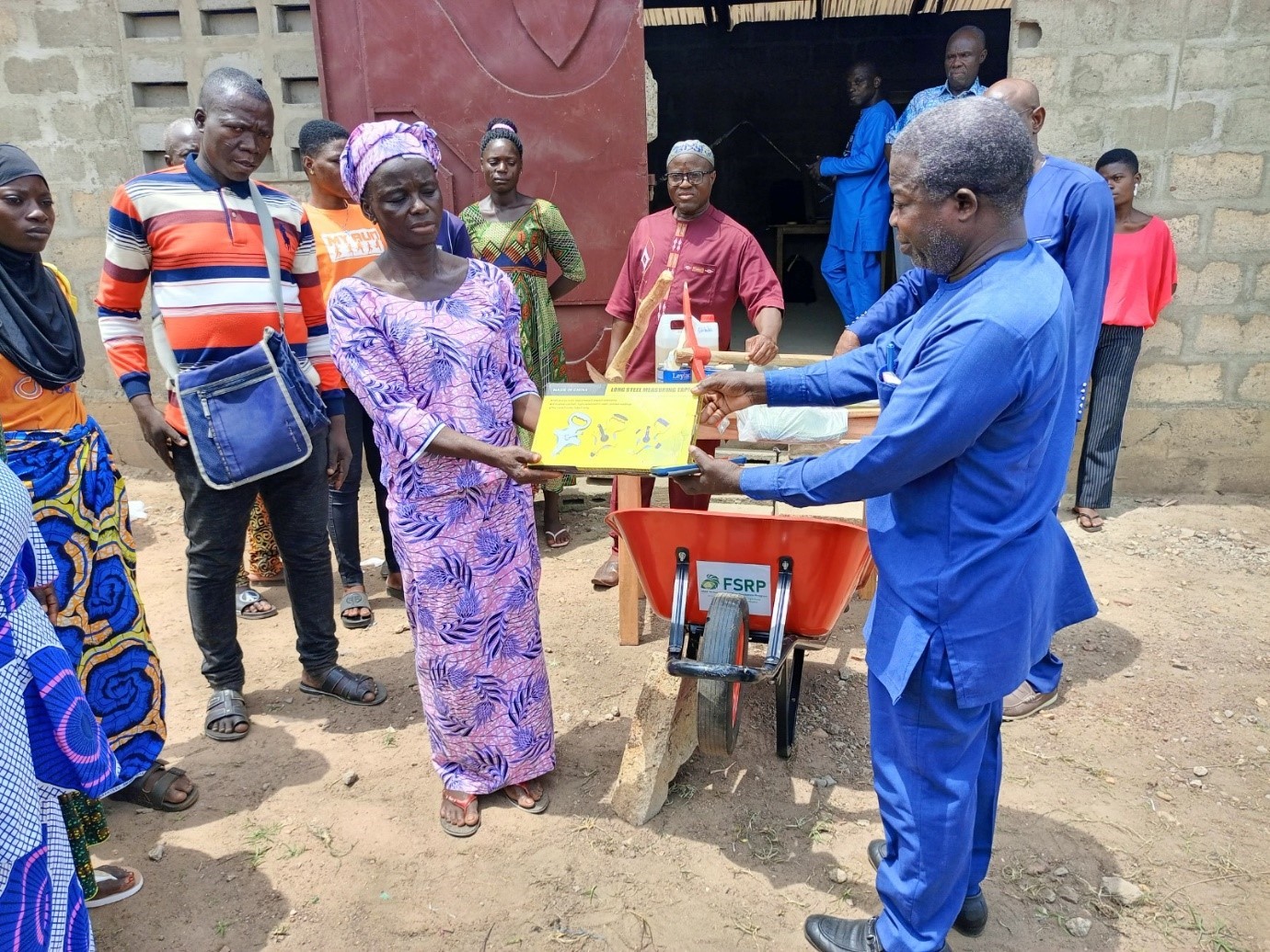
The training aligns with Togo's ambition of producing 1,115,087 tonnes of rice by 2030.
Esaïe Edoh
Lomé-Cotonou Road Rehabilitation Project Will Be Complete in 3 Months (AfDB)
Works to rehabilitate the Lomé-Cotonou road will be done in three months. The African Development Bank (AfDB) announced the date, after visiting the site last Thursday, June 25. According to the bank, the work is 80% complete at the moment.
The AfDB delegation was with two others–one from the European Union and another from the West African Development Bank (BOAD).
"We're very pleased with what we've seen. The work is almost complete. In a few months, the work will be handed over, which will help strengthen regional integration in West Africa", said Joaquin Tasso Vilallonga, European Union ambassador to Togo.
The EU delegation also visited the Baguida market, in the Golfe 6 municipality. There, 13 new sheds and warehouses have been built, and the water and electricity distribution network has been rehabilitated.
The Lomé-Cotonou Road Rehabilitation and Coastal Protection Project (Phase 2) is financed by the AfDB, the EU, BOAD, the Global Environment Facility (GEF), and the Togolese government. The project’s total cost is €181.4 million.

